Breast Reconstruction in Dallas
Search and Compare the Best Clinics and Doctors at the Lowest Prices for Breast Reconstruction in Dallas

Find the best clinics for Breast Reconstruction in Dallas
With Medijump you can browse 3 facilities offering Breast Reconstruction procedures in Dallas. The cheapest price available is $3,000 in Los Angeles. And for the cheapest price globally, prices start from $477 in India.
Breast Reconstruction in United States
Price: $ 3,000
Breast Reconstruction in Los Angeles
Price: $ 3,000
India offers the best prices Worldwide
Price: $ 477
From 43 verified reviews
Kristen Larkin, 20 September 2020
I traveled from Colorado to see Dr. Hubbard for a breast augmentation and all I can say is WOW!!!! Not only is he an exceptionally skilled surgeon, he has the best bedside manner of any doctor around. He and his staff (Ms. Rheanna and the rest of the ladies :)) immediately made me feel at ease, from the initial consult to the aftercare process which I am still in. I woke up the next day with minimal pain and have absolutely zero discomfort as we speak...and it's only four days later!! Dr. Hubbard and his staff are the consummate professionals and will immediately make you feel like family...how many other doctors and their staff can you say that about? I know for 100% certainty I will only be seeing Dr. Hubbard for all medical procedures, regardless of where I live!!
North Texas Plastic Surgery, located in Vickery Meadow, Dallas, United States offers patients Breast Reconstruction procedures among its total of 29 available procedures, across 1 different specialties. Currently, there's no pricing information for Breast Reconstruction procedures at North Texas Plastic Surgery, as all prices are available on request only, whilst the national average price is approximately $3,000. All procedures and treatments are undertaken by just a small team of specialists, with 2 in total at the Clinic, and they are not accredited by any recognized accreditations institutes
Gregg M. Anigian MD. Plastic Surgery, located in Vickery Meadow, Dallas, United States offers patients Breast Reconstruction procedures among its total of 32 available procedures, across 2 different specialties. Currently, there's no pricing information for Breast Reconstruction procedures at Gregg M. Anigian MD. Plastic Surgery, as all prices are available on request only, whilst the national average price is approximately $3,000. All procedures and treatments are undertaken by the lead specialist at the Clinic, and they are accredited by The American Society for Aesthetic Plastic Surgery
- Home
- United States
- Dallas
Compare Before & After Photos of _procedure_photos.phpBreast Reconstruction
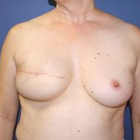
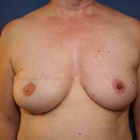
Front view
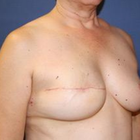
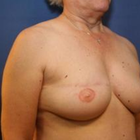
Half-side view
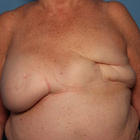
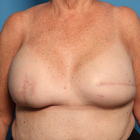
Front view
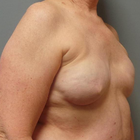
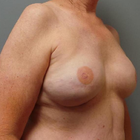
Half-side view
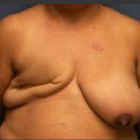
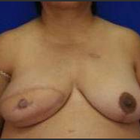
Front view
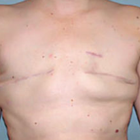
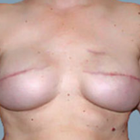
Front view
WHY US?
At Medijump, we're making medical easy. You can search, compare, discuss, and book your medical all in one place. We open the door to the best medical providers worldwide, saving you time and energy along the way, and it's all for FREE, no hidden fees, and no price markups guaranteed. So what are you waiting for?

Free

Best Price

Widest Selection

Risk-Free
What you need to know about Breast Reconstruction in Dallas
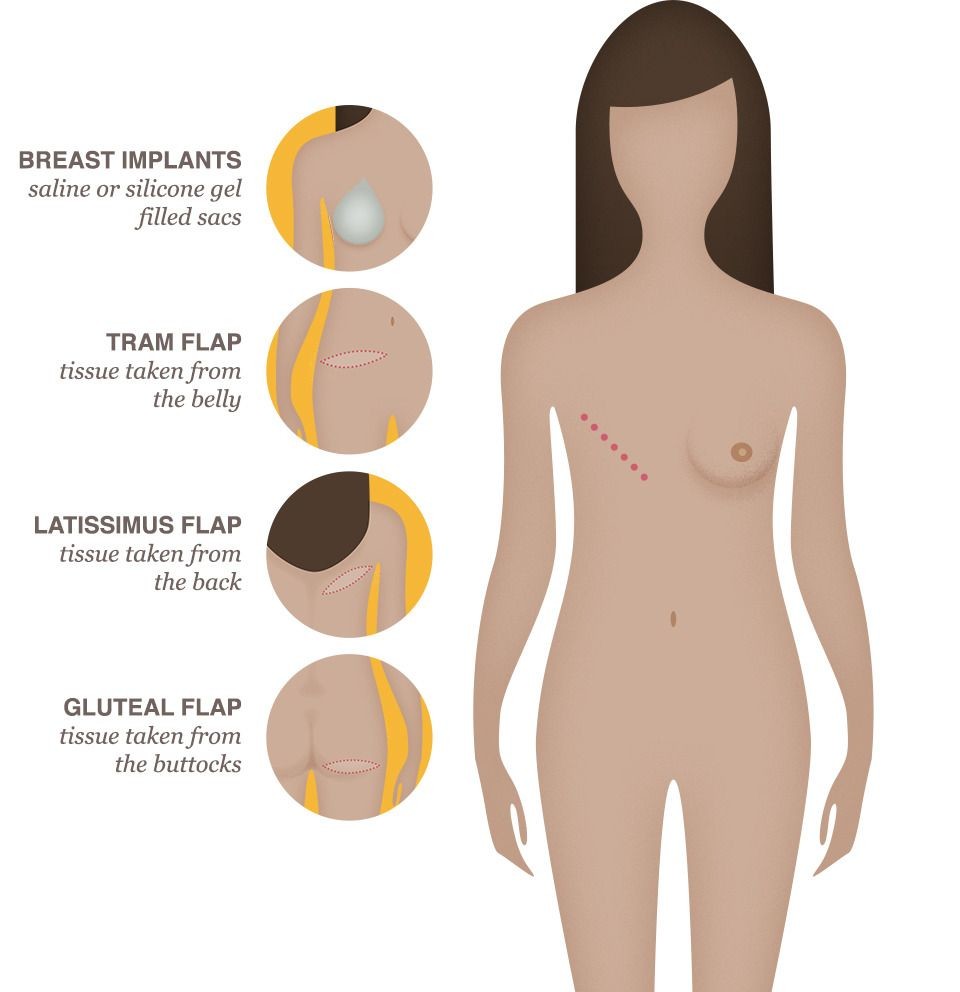
Breast reconstruction is a significant surgery undertaken to rejuvenate the physical form of a woman's chest after losing one or both breasts to cancer or another disease. In Dallas, medical centres are well-equipped with top-tier talent in plastic surgery to facilitate this intricate procedure. Every woman's journey is different, and her treatment plan is personalized, considering her unique circumstances and needs.
It's heartening to know that breast cancer treatments like chemotherapy or radiation therapy aren't impeded by reconstruction. Moreover, this surgery doesn't spike the risk of cancer coming back. Undeniably, breast reconstruction is a major surgery with inherent risks, including chances of infection, complications with wound healing, and potential dilemmas related to implants.
What is the cost of Breast Reconstruction in Dallas?
Undergoing surgery like Breast Reconstruction brings along a financial commitment. The expense varies extensively, depending on many factors like the complexity of the procedure, the medical professional performing the surgery, the hospital's facility, and the region, amongst others. Generally, the cost might range between $15,000 to $50,000, including multiple surgeries or intricate techniques within this estimate.
Thankfully, in many cases, insurance plans cover such surgical procedures, especially given mandates like the Women's Health and Cancer Rights Act of 1998 in the U.S. Still, out-of-pocket expenses associated with co-payment or deductibles can add up. It's recommended to navigate these aspects with your insurance provider and your chosen healthcare facility in Dallas.
What does a Breast Reconstruction Procedure Involve?
Breast reconstruction generally happens in stages, starting with the most complex first, which may either occur at the same time as the mastectomy or later, based on the individual’s specific health conditions or treatment plan.
Two main techniques are employed in breast reconstruction. One is the use of an implant, saline, or silicone to recreate the breast shape. Two, autologous or flap reconstruction where tissue from the patient’s body like the abdomen or thigh is relocated to recreate the breast shape. The method selected is dependent on individual factors like the patient’s health, personal choice, cancer type, and stage.
After the primary surgery and post an adequate healing period, the surgeon performs a second procedure to recreate the nipple and areola. Later, to give it a natural look, the nipple-areola complex is tattooed. Remember that although it is a common procedure, complications might arise involving reaction to anaesthesia, bleeding, infection, poor healing or the need for further interventions.
How Long Should I Stay in Dallas for a Breast Reconstruction Procedure?
Post-breast reconstruction surgery, patients typically stay in the hospital for two to five days. However, if the reconstruction was done immediately after the mastectomy, the stay could extend from three to six days.
Overall, a patient should expect to remain in Dallas for approximately two weeks post-surgery. This allows enough time for necessary follow-ups and to address any complications, if they arise. As with any major surgical procedure, do not hasten the healing process.
What's the Recovery Time for Breast Reconstruction Procedures in Dallas?
The recovery timeframe for breast reconstruction procedures in Dallas varies from patient to patient. Generally, for implant-based procedures, patients may take about four to six weeks to recuperate before they return to normal routines. For more complex autologous techniques, particularly those using abdominal tissue, patients might require six to eight weeks for recovery.
Recovering patients need to temper their activities during this period. Avoid lifting heavy objects and defer strenuous exercise until your physician gives a clear signal. Medical assistance should be promptly sought if any discomforting symptoms like chronic pain, redness or swelling surface.
What's the Success Rate of Breast Reconstruction Procedures in Dallas?
Medical success cannot just be measured in terms of complication-free postoperative progress or longevity of implants used in breast reconstruction. Patient satisfaction with their surgery, their psychological well-being following the operation, their perception of body image, and their quality of life post-surgery are equally important factors to consider. Studies indicate that between 85% to 90% of women who have undergone breast reconstruction are satisfied with the long-term results.
In Dallas, dedicated hospitals and healthcare facilities strive to offer high-quality treatment, ensuring the best possible surgical outcomes using progressive technology and experienced professionals. Still, everyone's response to surgery varies, and outcomes depend on factors such as overall health, age, body type, and compliance with surgical advice.
Are there Alternatives to Breast Reconstruction Procedures in Dallas?
Indeed, there are alternatives to breast reconstruction in Dallas. The journey of every woman is unique and how she chooses to deal with the loss of a breast, or both, is a highly personal decision. Alternatives include:
- Breast Prostheses or Forms: They are silicone forms that imitate the appearance and feel of natural breast tissue. They come in diverse sizes, shapes and colours to closely match the woman's skin tone.
- Flat Closure: In this method, the surgeons sew up the chest wound smoothly, without constructing a breast mound. This option appeals to women who choose not to have more surgeries or body implants.
- Opting not to undergo reconstruction at all, also termed as "going flat: This method exhibits the woman's choice to live comfortably with her new body shape without artificial substitutes or further surgeries. It is a fully personal decision deserving respect and support.
Each of these options has pros and cons, and the choice depends on the woman’s personal preference, health status, lifestyle, and perception of her body. Regardless of the choice, it’s important to regularly monitor breast health and engage in practices that promote overall wellness.
What Should You Expect Before and After the Breast Reconstruction Procedure?
Before the surgery, comprehensive discussions with the surgeon will take place to understand treatment objectives, outcomes, and possible complications. Preoperative tests, lifestyle modifications, and nutritional advice may form a part of the preparatory process.
Postoperative care is equally important: discomfort, swelling, and bruising are normal and subside over time. Pain management strategies will be provided to help you manage discomfort effectively. Your surgeon will provide personalised guidance on caring for your surgical site, usage of medications, and physical activities.
What sort of Aftercare is Required for Breast Reconstruction Procedures in Dallas?
The following points should be considered post-operation:
- Follow the instructions given by your doctor and take your medicines as and when prescribed.
- Consult a nutritionist for a diet plan. A healthy diet helps you recover faster.
- Do not wear a padded or underwire bra until allowed by your doctor.
- Use surgical bras in the early few days after the surgery.
- Avoid excessive unnecessary movement of your breasts.
- Do not lift heavy objects and children - it could stretch on your stitches.
- Change your bandage whenever it gets dirty. Germs can cause infection.
- Do not take a bath when the bandages are still intact. A wet bandage can also be the cause of infection.
- Abstain from sexual activity for at least 6 weeks.
- Take rest - give yourself time to recover.
How Do I Prevent Cancer from Recurring?
Preventing cancer recurrence largely revolves around a balanced, healthy lifestyle coupled with regular medical check-ups. Regular exercise, maintaining a healthy weight, and eating nutritiously can contribute to cancer prevention. Smoke cessation and limiting exposure to secondhand smoke are crucial for both prevention and postoperative recovery.
Regular breast self-examinations, as well as mammograms and follow-up visits, are critical for early detection of any recurrence. Stress management techniques like yoga, meditation, and spending time in nature can also play an essential role in overall health.
Your medical team in Dallas is there to support you, offering advice tailored to your individual health status and medical history. Remember, proactive health checks are key to maintaining overall health and preventing the recurrence of diseases like cancer.
What is the ideal time to have Breast Reconstruction surgery after a Mastectomy in Dallas?
The decision regarding when to have Breast Reconstruction following a Mastectomy in Dallas is largely based on the individual's health status, treatment plan, personal preferences, and discussions with the oncology team. Breast reconstruction can be done at the time of mastectomy (immediate reconstruction) or at a later date (delayed reconstruction). Immediate reconstruction might offer psychological benefits and less overall surgery since both procedures are done together. Yet, if additional treatments such as radiation therapy are required post-mastectomy, opting for delayed reconstruction could be advisable to avoid risks posed by radiation to the new construct.
Remember that deciding on the timing of breast reconstruction is a personal choice and should be made in consultation with your healthcare providers. They can provide specific guidance based on your health condition and treatment plan.
How Will Breast Reconstruction in Dallas Impact My Routine Mammograms and Breast Cancer Detection?
Breast reconstruction surgery may impact the way routine breast cancer screenings are conducted. After a mastectomy with or without reconstruction, women usually don't need routine screening mammograms on the treated side since all breast tissue has been removed. However, they would need routine mammograms for the untreated breasts.
If you've had reconstruction using your own body tissue, your surgeon or oncologist will guide you on whether or not you'll require mammograms on the reconstructed breast. Remember, mammograms can still be performed on reconstructed breasts, and self-breast exams should be a regular part of your health routine.
Whilst the information presented here has been accurately sourced and verified by a medical professional for its accuracy, it is still advised to consult with your doctor before pursuing a medical treatment at one of the listed medical providers
No Time?
Tell us what you're looking for and we'll reachout to the top clinics all at once
Enquire Now

Popular Procedures in Dallas
Prices Start From $497

Prices Start From $208

Prices Start From $834

Prices Start From $500

Prices Start From $93

Prices Start From $85

Recommended Medical Centers in Dallas for Breast Reconstruction

- Interpreter services
- Translation service
- Religious facilities
- Medical records transfer
- Medical travel insurance
- Health insurance coordination
- TV in the room
- Safe in the room
- Phone in the room
- Private rooms for patients available

- Interpreter services
- Translation service
- Religious facilities
- Medical records transfer
- Medical travel insurance
- Health insurance coordination
- TV in the room
- Safe in the room
- Phone in the room
- Private rooms for patients available

- Interpreter services
- Translation service
- Religious facilities
- Medical records transfer
- Medical travel insurance
- Health insurance coordination
- TV in the room
- Safe in the room
- Phone in the room
- Private rooms for patients available

- Interpreter services
- Translation service
- Religious facilities
- Medical records transfer
- Medical travel insurance
- Health insurance coordination
- TV in the room
- Safe in the room
- Phone in the room
- Private rooms for patients available

- Interpreter services
- Translation service
- Religious facilities
- Medical records transfer
- Medical travel insurance
- Health insurance coordination
- TV in the room
- Safe in the room
- Phone in the room
- Private rooms for patients available

- Interpreter services
- Translation service
- Religious facilities
- Medical records transfer
- Medical travel insurance
- Health insurance coordination
- TV in the room
- Safe in the room
- Phone in the room
- Private rooms for patients available

- Interpreter services
- Translation service
- Religious facilities
- Medical records transfer
- Medical travel insurance
- Health insurance coordination
- TV in the room
- Safe in the room
- Phone in the room
- Private rooms for patients available

- Interpreter services
- Translation service
- Religious facilities
- Medical records transfer
- Medical travel insurance
- Health insurance coordination
- TV in the room
- Safe in the room
- Phone in the room
- Private rooms for patients available
Breast Reconstruction in and around Dallas
About Dallas
Dallas, or nicknamed as the Big D, is a metropolitan city located in North Texas. The city is known for its massive excellent museums, youthful vibe, edgy culture, and distinctive neighborhoods. Thanks to its charming attractions combined with world-class medical centers, the city is now a rising medical tourism destination. Additionally, the expansion of the medical district in Northwest Dallas has contributed to the city’s popularity as a medical destination. The district is home to numerous significant hospitals and institutions, such as UT Southwestern Medical Center and Parkland Memorial Hospital. More and more people, both from other cities in the United States or from other countries in the world, come to Dallas to get treatment with modern medical equipment, professional doctors, and world-class medical centers. Among the surgeries and treatments available, lung treatment is the most sought-after procedure.
Popular Areas in Dallas
- Dallas Arboretum & Botanical Garden is 66 acres of lush nature that showcases beautiful plants and flowers in themed areas. It has 19 gardens to explore, such as the Woman’s Garden, DeGolyer Gardens, Sunken Garden Crape Myrtle Alee, and Nancy’s Garden. Autumn at the Arboretum is Dallas’ Favorite Tradition during the fall that visitors should not miss. During spring, Pink Hyacinths with violas and daffodils bloom in the gardens, and the whole arboretum is packed with visitors and the nearby streets are closed.
- Nasher Sculpture Center is a museum that houses the Patsy and Raymond Nasher collection of modern and contemporary sculpture. Together, they accumulated one of the most comprehensive private collections in the world. Tourists can admire masterpieces such as works by Alexander Calder, Alberto Giacometti, Henri Matisse, Paul Gaugin, and Willem de Kooning, among others. Designed by architect Renzo Piano, the building itself is a work of art.
- Pioneer Plaza is the biggest open space in Dallas as well as one of the most visited tourist sites in the city. It is surrounded by super detailed sculptures of cattle, trees, and flowers that are native to the area. Tourists can find a small waterfall and creek in the area. There is also an early period cemetery from the 1800s where former Dallas mayors and Texas Revolution leaders are buried. It is truly the place that honors the tradition and culture of Texas.
- Sixth Floor Museum at Dealey Plaza is located in the former Texas School Book Depository, which is the very spot where Lee Harvey Oswald, according to government investigations, shot and killed President John F. Kennedy. The museum uses historic films, photographs, artifacts, and interpretive display to exhibit the social and political landscape of the early 1960s, the assassination of President Kennedy and its aftermath, as well as the legacy that he left behind.
Weather and Climate in Dallas
June to August is Summer in Dallas, and the temperatures can soar to over 30 °C. In addition to the heat, the high humidity levels will make the weather feel unbearable. However, it is the most popular time to visit the city. Autumn brings cooler and pleasant weather to the city. The temperatures can drop to 21 °C, and the city will be less crowded than the summer. Winter starts in December and ends in February. Average daytime highs are around 10 °C, but there are days with below-freezing temperatures. The city may also receive a few days of snowfall. From Mach to May is spring and the temperatures are rising to 21 °C, but there is a lot of rain during this season.
Getting Around in Dallas
The primary international airport is the Dallas/Fort Worth International Airport. It is the ninth busiest international gateway in the United States and operates flights to and from many cities around the world, including London, Dubai, and Tokyo. It is the largest hub for American Airlines, and several budget airlines serve flights from this airport, such as Spirit Airlines and Sun Country Airlines.
The city has a light rail system that connects the downtown with many other areas in the city. It is operated by Dallas Area Rapid Transit (DART) and features four lines (Red, Orange, Green, and Blue) servicing 64 stations. The trains run from 5.00 AM to midnight. There is also another train system known as the Trinity Railway Express (TRE) that connects Dallas and Fort Worth. The TRE trains from Fort Worth and Dallas operate from 5.00 AM to 11.00 PM from Monday to Friday. Dallas Area Rapid Transit also operates an extensive bus system that serves 11,000 stops throughout central Dallas and the Metroplex. Taxis are the easiest way to get around the city, especially for first-time visitors as they are relatively inexpensive with an initial charge of $5 and then $3 for each mile.
Tourists Visas in Dallas
Canada, Marshall Island, Micronesia, Palau, and Bermuda are given visa exemption access to enter the United States. Holders of passports issued by 38 countries, such as Australia, Singapore, and the United Kingdom, are selected for the Visa Waiver Program, which means they can enter without a visa. Other countries not listed in the visa exemption and visa waiver program need to apply and obtain a visa to enter the country. All visitors may stay for up to 90 days. It is advisable to check the visa policy at your nearest United States Embassy.
Additional Information
- Local Currency: The official currency is the US dollar ($). It is considered as a global currency used in many international transactions.
- Money & Payments: ATMs are easy to find, commonly at airports, banks, malls, gas stations, and convenience stores. Credit and debit cards are widely accepted and usually required for reservations. Since service employees make minimum wage, tipping is essential.
- Local Language: English is the most widely spoken language, and more than 29% of the residents speak Spanish.
- Local Culture and Religion: Around 55% of the population is religious. Christianity is the largest religion in Dallas, followed by Islam, Judaism, and eastern faith.
- Public Holidays: New Year’s Day, Texas Independence Day, Independence Day, Thanksgiving, and Christmas are some of the major public holidays in Dallas. The city hosts numerous annual festivals such as Scarborough Renaissance Festival and Texas State Fair.
Popular Searches
- Plastic Surgery in Thailand
- Dental Implants in Thailand
- Hair Transplant in Thailand
- Breast Augmentation Thailand
- Gastric Sleeve in Thailand
- Gender Reassignment Surgery in Thailand
- Laser Hair Removal in Bangkok
- Botox in Bangkok
- Dermatology in Bangkok
- Breast Augmentation in Bangkok
- Coolsculpting in Bangkok
- Veneers in Turkey
- Hair Transplant in Turkey
- Rhinoplasty in Turkey
- Stem Cell Therapy in Mexico
- Rhinoplasty in Mexico
- Liposuction in Mexico
- Coolsculpting in Tijuana
- Rhinoplasty in Korea
- Scar Removal in Korea
- Gastric Sleeve in Turkey
- Bone Marrow Transplant in India
- Invisalign in Malaysia
- Plastic Surgery in the Dominican Republic
- Tummy Tuck in the Dominican Republic
- Plastic and Cosmetic Surgery in Poland
- Rhinoplasty in Poland
- Hair Implant in Poland
- Dental Implants in Poland
- IVF in Turkey


